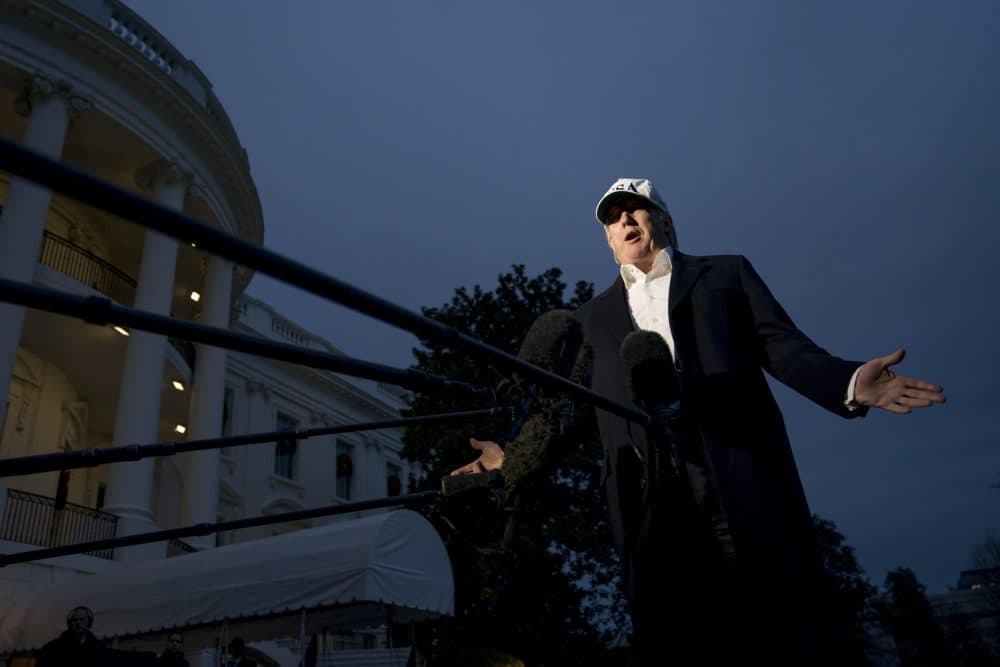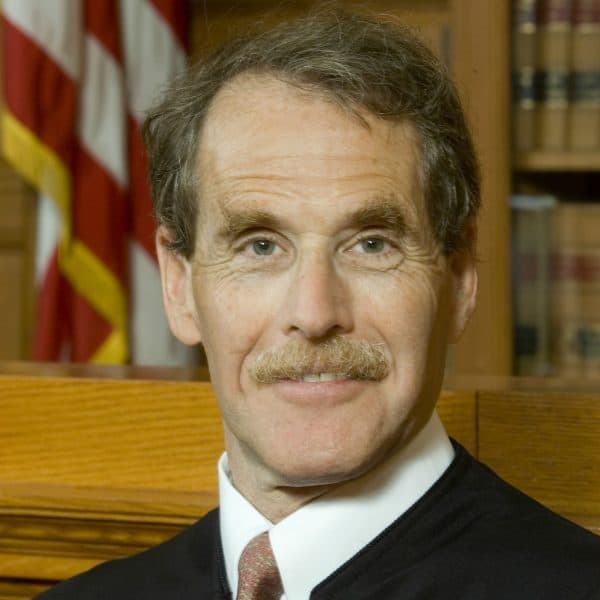Advertisement
COMMENTARY
How Trump May Have Obstructed Justice

Supporters of President Trump have mounted a growing campaign to undermine the work of special prosecutor Robert Mueller. The obvious political motivation of these efforts clearly reduces their credibility.
At the same time, however, they are receiving support from some academics, including Harvard Law School professor Alan Dershowitz. Unfortunately, Dershowitz's underlying analysis is simply incorrect. Even more unfortunately, what would otherwise be an arcane legal dispute is now ammunition in a frontal assault on the rule of law, signaled by the drumbeat of public attacks on Mueller, his team and the FBI in general.
Meanwhile, rumors have been flying that Trump will fire Mueller by the end of the year, despite warnings from Republicans not to act. Trump said earlier this month that he's not firing the special prosecutor.
The theory advanced to denigrate Mueller’s investigation is that the Constitution's Article II gave the president authority to fire FBI Director James Comey and removes the legal basis for a charge of obstruction of justice. However, the legality or constitutionality of a particular act does not bar a charge of obstruction. While it is common for such charges to involve attempts at bribery or coercion of public officials, the separate illegality of such acts is not a required element of the offense.
The relevant language of the statute provides that "whoever ... corruptly ... influences, obstructs, or impedes, or endeavors to influence, obstruct, or impede, the due administration of justice, shall be [guilty of an offense]." This language does not require that the corrupt intent to affect the administration of justice be based on an illegal or unauthorized act. In law, especially criminal law, words matter.
Indeed, adding a requirement of separate illegality would be a serious dilution of the protection that the statute is intended to provide. Justice defeated by an act that would otherwise be legal is no less a threat to our legal system than behavior that is obviously criminal. The former is actually the more dangerous behavior because a conviction under such circumstances is more difficult to obtain.
As a simple example, when the target of a grand jury investigation makes a donation to a charity favored by a law enforcement official, it is exclusively the intent of that otherwise perfectly legal act that makes the difference. Motivation is key.
The challenge presented by the obstruction case against the president is not the legality of the Comey dismissal, but why it was ordered. The president has made contradictory public statements on this subject, and it is frankly hard to believe that he will not continue to do so.
It is also necessary to address the related argument that because the president is an executive with power to determine the work of the Justice Department, an order to a subordinate to call off an investigation cannot be obstruction. This approach, invoking the authority conferred by the chain of command, automatically labels such an order as part and parcel of the “due administration of justice” regardless of any actual intent to “influence, obstruct or impede” that same justice.
Like the argument of separate legality, the chain of command argument requires rejection. Both approaches require the flawed conclusion that a president has the constitutionally sanctioned power to prevent federal law enforcement investigation into his or her own suspected criminality simply by issuing orders or performing otherwise authorized functions of the office. Despite Richard Nixon’s famous assertion, “Well, when the president does it, that means it’s not illegal,” neither the constitution nor the federal code supports such a dangerous outcome.
